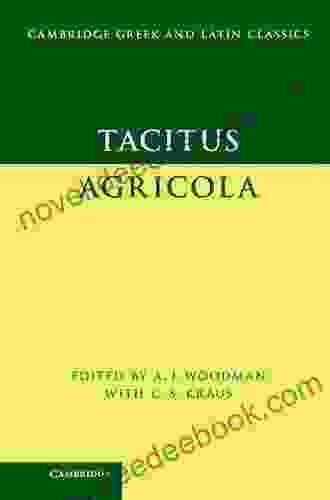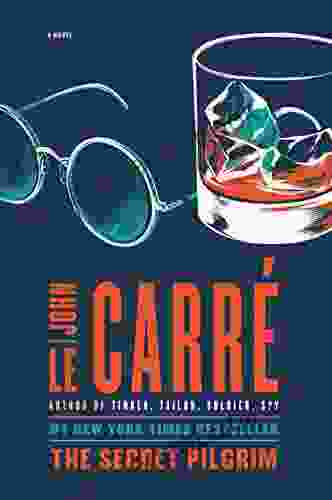Tacitus' Agricola: A Comprehensive Guide to Cambridge Greek and Latin Classics

Tacitus' Agricola, published around 98 AD, is a seminal work in Roman literature and historiography. It is a biography of Tacitus' father-in-law, Gnaeus Julius Agricola, a Roman general and governor of Britain. The text offers a unique blend of historical narrative, ethnography, and political commentary, providing valuable insights into the Roman Empire and its relationship with Britain during the first century AD. This comprehensive article delves into the significance of Tacitus' Agricola, examining its historical, literary, and cultural impact as a cornerstone of Cambridge Greek and Latin Classics.
4.2 out of 5
| Language | : | English |
| File size | : | 2544 KB |
| Text-to-Speech | : | Enabled |
| Screen Reader | : | Supported |
| Enhanced typesetting | : | Enabled |
| Print length | : | 372 pages |
Historical Context
Tacitus' Agricola provides a firsthand account of Roman Britain during the governorship of Gnaeus Julius Agricola from 78 to 84 AD. The text chronicles Agricola's military campaigns against the Caledonian tribes of northern Britain, his efforts to establish Roman rule, and his interactions with the native population. Through Agricola's experiences, Tacitus offers a vivid portrayal of the social, political, and cultural dynamics of Roman Britain. The work sheds light on the challenges faced by the Romans in conquering and governing distant territories, as well as the impact of Roman imperialism on local populations.
Literary Significance
As a literary work, Tacitus' Agricola is a masterpiece of Latin prose. Its elegant style and skillful use of rhetoric have earned it a place among the greatest works of Roman literature. Tacitus employs a range of literary devices, including speeches, descriptions, and digressions, to create a compelling and engaging narrative. The text also showcases Tacitus' mastery of psychological analysis, as he delves into the motivations and character of Agricola and his contemporaries. Through its literary brilliance, Agricola has had a profound influence on subsequent historians and writers, serving as a model for historical and biographical writing.
Ethnographic Value
Tacitus' Agricola is not only a historical account but also an important ethnographic text. It provides a detailed description of the Caledonian tribes of northern Britain, their customs, religion, and social organization. Tacitus' observations offer valuable insights into the pre-Roman cultures of Britain and contribute to our understanding of the diversity and complexity of Celtic societies. The text also explores the cultural interactions between the Romans and the Britons, highlighting the challenges and opportunities that arose from the encounter between two distinct civilizations.
Political Commentary
Beneath its historical and literary facade, Tacitus' Agricola is also a political commentary. Through the portrayal of Agricola as an ideal Roman general and governor, Tacitus implicitly criticizes the policies of the emperor Domitian, under whom he wrote. The text highlights Agricola's integrity, military prowess, and commitment to justice, contrasting him with Domitian's tyranny and paranoia. Agricola thus becomes a symbol of the virtues that were lacking in the Roman Empire during the Flavian dynasty.
Influence and Legacy
Tacitus' Agricola has had a lasting impact on Western literature and thought. It has served as a source of inspiration for historians, writers, and scholars throughout the centuries. Its historical insights have shaped our understanding of Roman Britain and the Roman Empire, while its literary excellence has influenced the development of prose writing. Moreover, the text's political commentary has resonated with readers in different eras, providing a timeless critique of tyranny and a reminder of the importance of virtue in leadership.
Tacitus' Agricola is a multifaceted and enduring work that occupies a prominent place in Cambridge Greek and Latin Classics. It is a historical account, an ethnographic study, a literary masterpiece, and a political commentary, offering a profound insight into Roman Britain, Roman imperialism, and the human condition. Its significance lies in its ability to transcend time and culture, speaking to readers across generations with its timeless themes and insights. Through its exploration of history, literature, and politics, Tacitus' Agricola continues to inspire, inform, and challenge readers, solidifying its status as a cornerstone of Western intellectual heritage.
4.2 out of 5
| Language | : | English |
| File size | : | 2544 KB |
| Text-to-Speech | : | Enabled |
| Screen Reader | : | Supported |
| Enhanced typesetting | : | Enabled |
| Print length | : | 372 pages |
Do you want to contribute by writing guest posts on this blog?
Please contact us and send us a resume of previous articles that you have written.
 Novel
Novel Text
Text Genre
Genre Reader
Reader Paperback
Paperback Paragraph
Paragraph Sentence
Sentence Bookmark
Bookmark Shelf
Shelf Glossary
Glossary Bibliography
Bibliography Foreword
Foreword Manuscript
Manuscript Tome
Tome Classics
Classics Narrative
Narrative Biography
Biography Autobiography
Autobiography Memoir
Memoir Encyclopedia
Encyclopedia Thesaurus
Thesaurus Narrator
Narrator Resolution
Resolution Librarian
Librarian Catalog
Catalog Card Catalog
Card Catalog Borrowing
Borrowing Stacks
Stacks Archives
Archives Research
Research Reserve
Reserve Academic
Academic Reading Room
Reading Room Rare Books
Rare Books Special Collections
Special Collections Interlibrary
Interlibrary Literacy
Literacy Dissertation
Dissertation Storytelling
Storytelling Book Club
Book Club Michel Le Breton
Michel Le Breton Robert E Looney
Robert E Looney Kennedy Brothers
Kennedy Brothers Tiffany Lethabo King
Tiffany Lethabo King Philip John Bruch
Philip John Bruch David Rothwell
David Rothwell Lucille Travis
Lucille Travis Evelyn Kohl Latorre
Evelyn Kohl Latorre Richard Newton
Richard Newton Francelina Robin
Francelina Robin Tamara Ferguson
Tamara Ferguson Laurence J Yadon
Laurence J Yadon Takeo Rivera
Takeo Rivera David Perkins
David Perkins Josh Luchs
Josh Luchs Jennifer Dawson
Jennifer Dawson Robert S Eden
Robert S Eden Royston Morris
Royston Morris Jessica Flounder
Jessica Flounder Lisa M Stasse
Lisa M Stasse
Light bulbAdvertise smarter! Our strategic ad space ensures maximum exposure. Reserve your spot today!
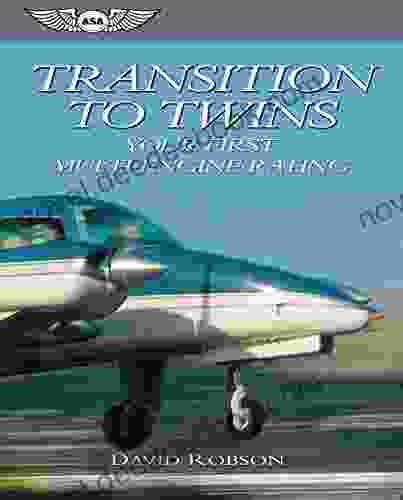
 Elmer PowellYour First Multi Engine Rating ASA Training Manuals: A Guide to Choosing the...
Elmer PowellYour First Multi Engine Rating ASA Training Manuals: A Guide to Choosing the...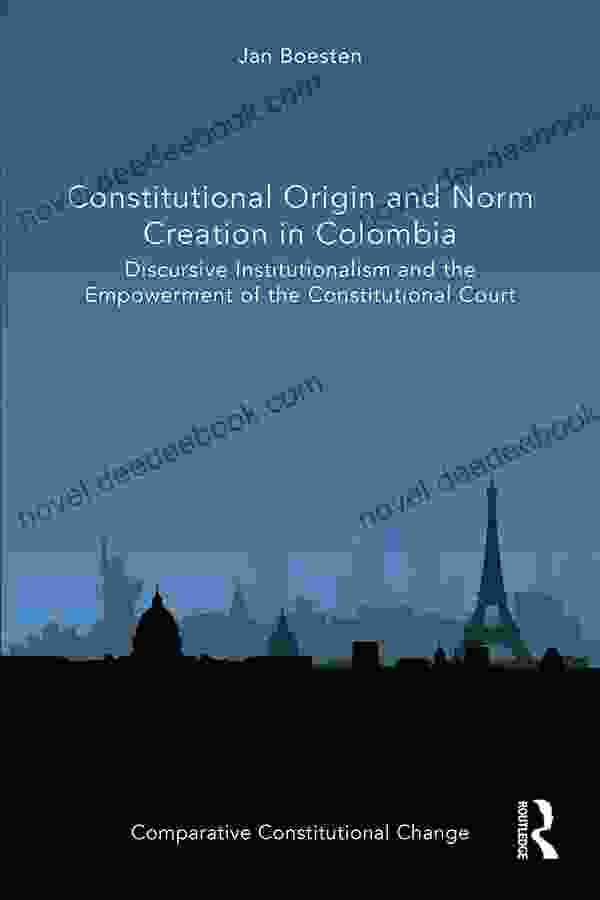
 Jacques BellDiscursive Institutionalism and the Empowerment of the Constitutional Court:...
Jacques BellDiscursive Institutionalism and the Empowerment of the Constitutional Court:... Devon MitchellFollow ·14.3k
Devon MitchellFollow ·14.3k Caleb CarterFollow ·2.7k
Caleb CarterFollow ·2.7k Ben HayesFollow ·12k
Ben HayesFollow ·12k Charles BukowskiFollow ·8.5k
Charles BukowskiFollow ·8.5k James JoyceFollow ·2.7k
James JoyceFollow ·2.7k Joshua ReedFollow ·5k
Joshua ReedFollow ·5k Milan KunderaFollow ·18.1k
Milan KunderaFollow ·18.1k Ernest HemingwayFollow ·6.4k
Ernest HemingwayFollow ·6.4k

 Bryce Foster
Bryce FosterPerforming Asian American Women On Screen And Scene
The representation of Asian American women...
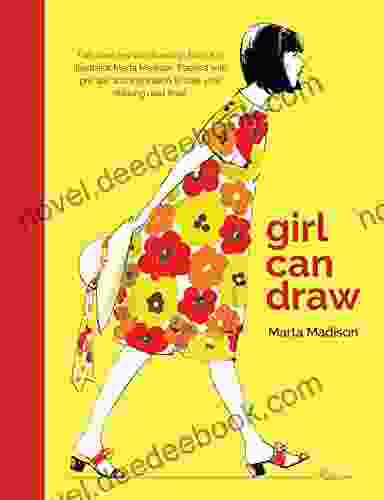
 Frank Mitchell
Frank MitchellGirl Can Draw: A Spirited and Inspiring Play by Joe...
Prologue In the realm of...

 Marc Foster
Marc FosterThe Epic Story of Race and the American Media: A Journey...
From the Shadows of Slavery to the Dawn of...

 Demetrius Carter
Demetrius CarterThe Ultimate Guide to Hiking West Virginia: Discover the...
West Virginia, often referred to as...

 Isaiah Price
Isaiah PriceThe Ten Step Guide on How to Become Famous: Unleash Your...
In the captivating world of entertainment...
4.2 out of 5
| Language | : | English |
| File size | : | 2544 KB |
| Text-to-Speech | : | Enabled |
| Screen Reader | : | Supported |
| Enhanced typesetting | : | Enabled |
| Print length | : | 372 pages |


